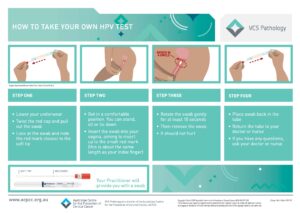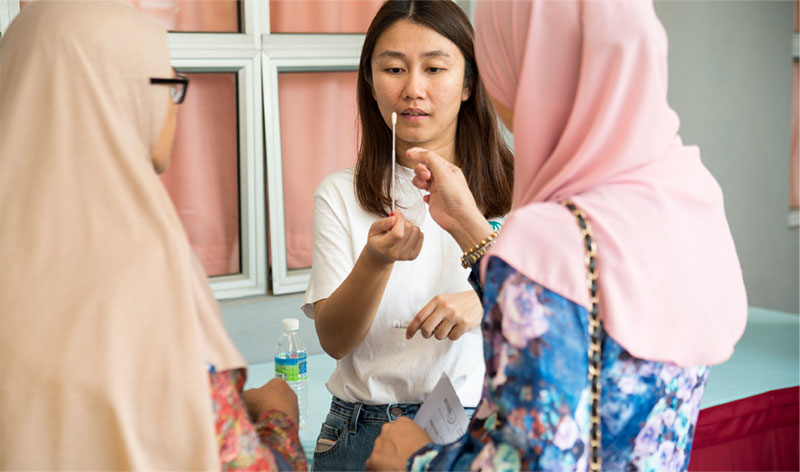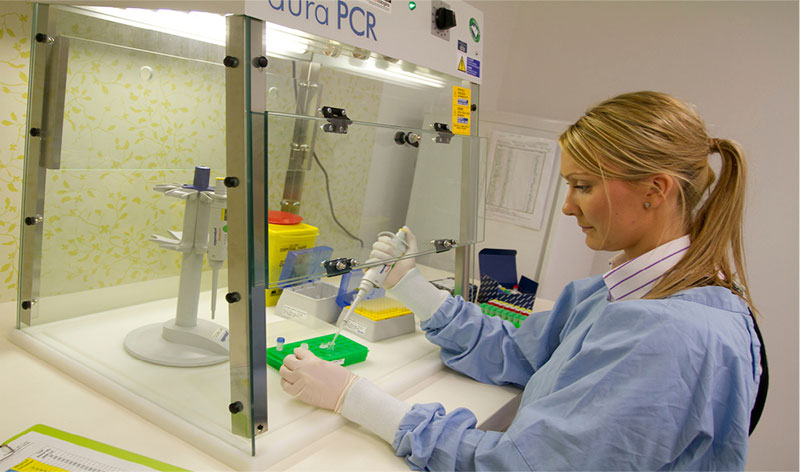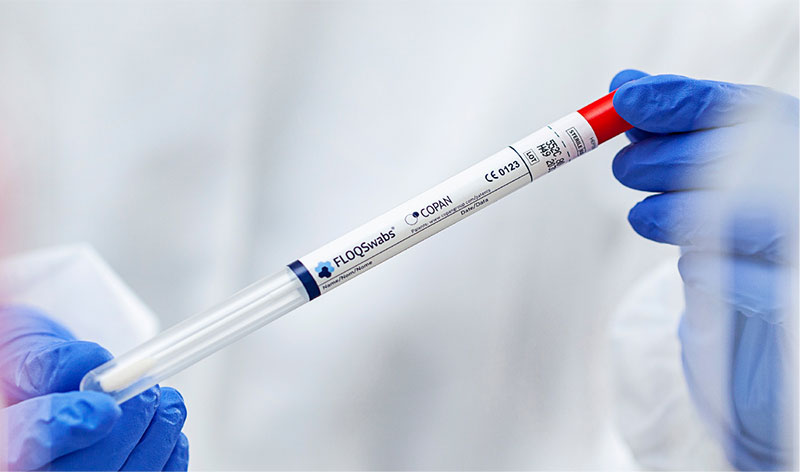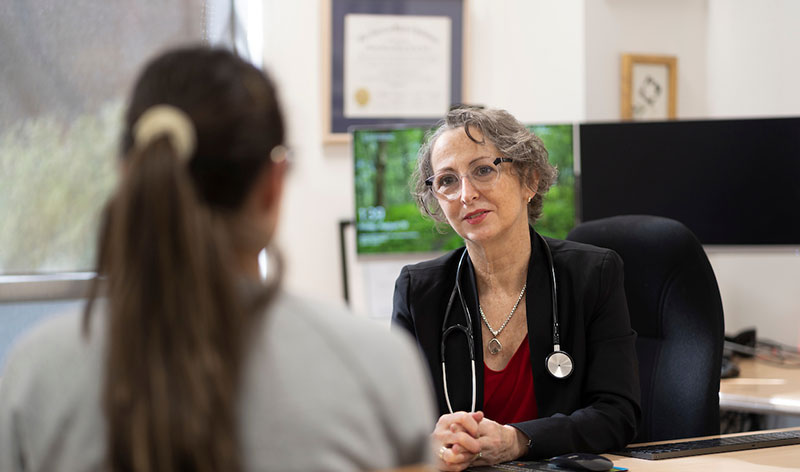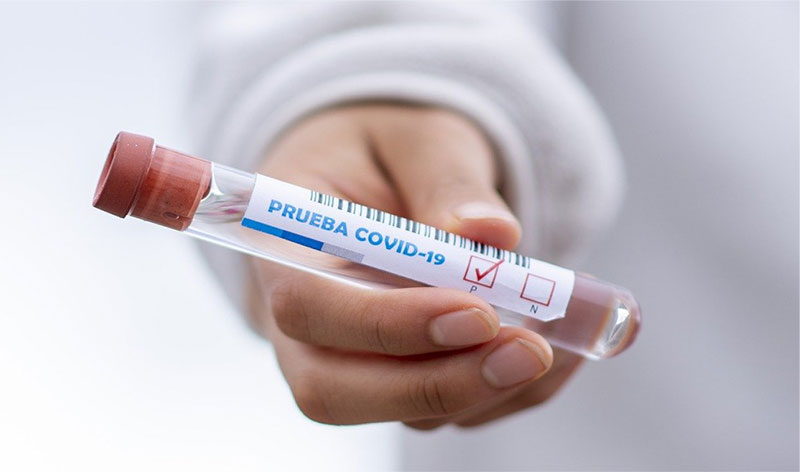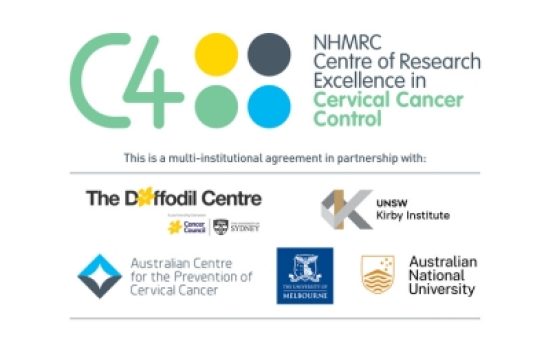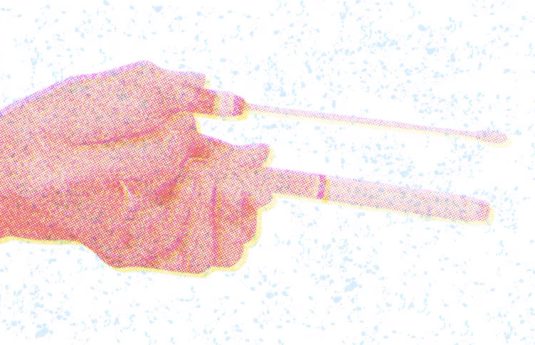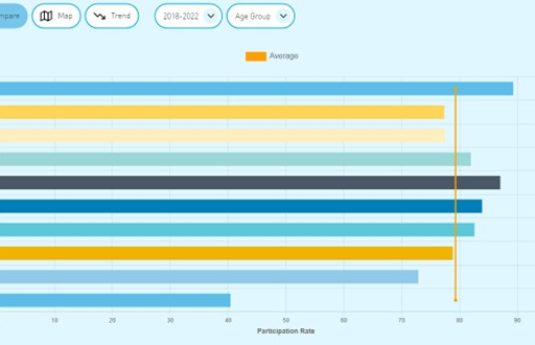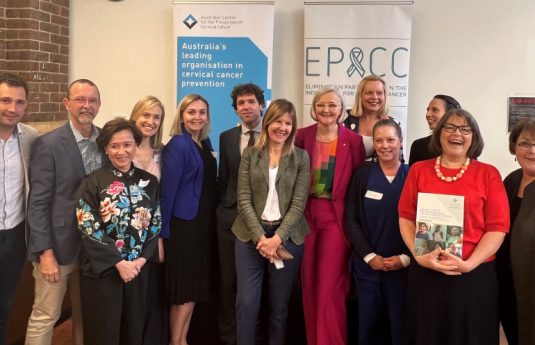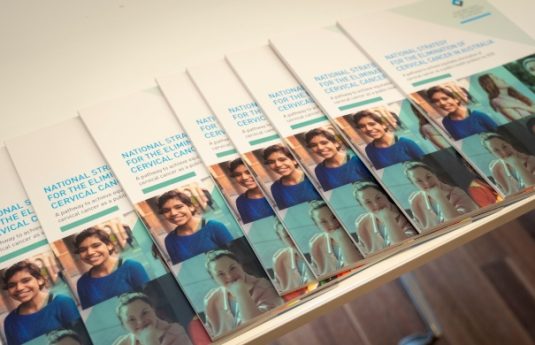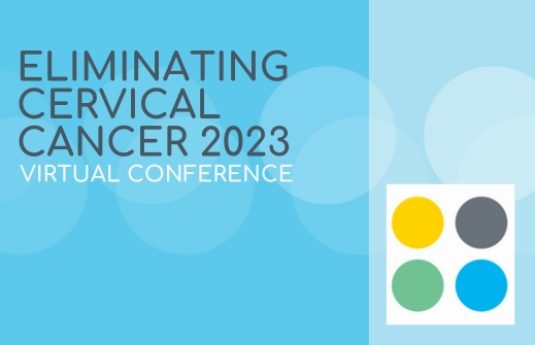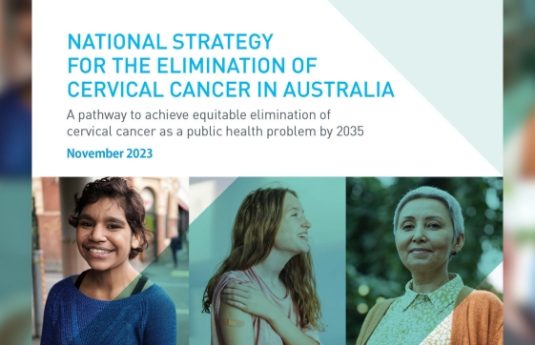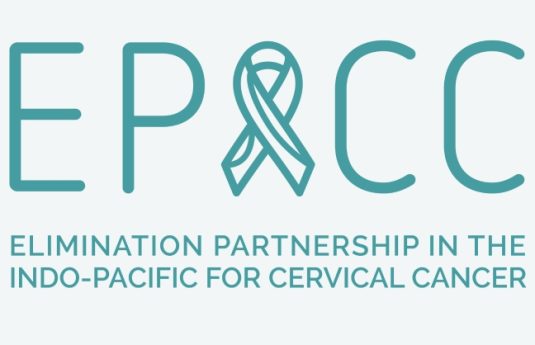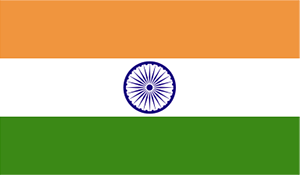MEDIA RELEASE Australia has reached the 2030 WHO elimination scale-up target for cervical screening coverage, well ahead of schedule, and is on track to become one of the first countries in the world to…
Menu
Self-collection FAQs
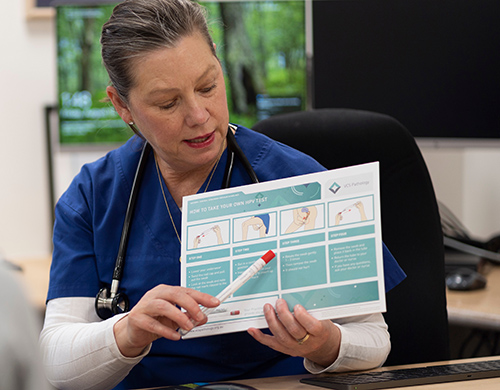
Self-collection is now an option for all participants in routine cervical screening.
How do I collect the sample?
The self-collected test is taken by inserting a soft swab into your vagina and rotating the swab for about 10 seconds. The swab takes a sample of cells from the vagina, which will be tested for the presence of HPV.
Is it as accurate as a test done by my doctor?
Self-collection is just as sensitive for detecting HPV and Pre-Cancer as a Cervical Screening Test taken by your doctor or nurse.
Where should I do the test?
A self-collected test is still done under the guidance of a healthcare provider. It is usually done at the doctor’s or other health setting, and can be taken in private, often behind a screen or in the bathroom.
What if I can't do it myself?
You can also ask your healthcare provider for help to take the test, if you think you would have difficulty taking a vaginal sample yourself.
What happens if the test comes back positive?
If HPV is found on your self-collected test, your doctor or nurse will explain your results and support you to undertake any further testing required.
Can everyone do self-collection?
All participants in routine cervical screening are now eligible for the self-collection option. Self-collection is not appropriate for some people, for example, those with symptoms or who have been treated for previous abnormalities.
To find out more, speak to your doctor or healthcare provider.
Cervical cancer starts in the cervix, which connects the uterus to the vagina. Find out more about what causes it, and how it can be prevented.
Regular cervical screening is the best way to prevent cervical cancer in all women and people with a cervix
Self-collection is another option that is now available for cervical screening, and involves taking your own swab from the vagina. Find out more about self-collection here
ACPCC is a not-for-profit organisation and only charges patients the Medicare Schedule fee for pathology services, with only a small gap amount payable.
READ UP ON IT
Related News Article
ACPCC launches the Inaugural Victorian Cancer Screening Annual Statistical Report. The Australian Centre for the Prevention of Cervical Cancer is pleased to announce the launch of the Inaugural Victorian Annual Cancer Screening Statistical Report….
Monday, 26 February 2024. The Allan Labor Government is calling on Victorians to make sure their cancer screenings checks are up to date in a major push to boost screening rates for breast, bowel…
Australia is stepping up its regional leadership in the elimination of cervical cancer, with the announcement today of a $12.5 million Australian Government grant to a consortium of leading Australian and international nongovernment health organisations….
Australia is stepping up its global leadership in the elimination of cervical cancer, with the announcement today of a $12.5 million Australian Government regional aid grant to a nongovernment consortium headed by the Daffodil Centre, a joint…
The C4 is thrilled about the announcement today by the Australian Government of the release of the National Strategy for the Elimination of Cervical Cancer and a $48.2 million investment to support implementation of…
On Friday 17th November, Cervical Cancer Elimination Day of Action 2023, the C4 hosted the first ECC2023 (previously named the Preventing Cervical Cancer Conference [PCC]). The theme of the conference was ‘From Prevention to…
This cervical cancer awareness week, the Australian Government has launched a landmark strategy set to make preventable cervical cancer a disease of the past, setting Australia on the path to becoming the first country…
Australia is stepping up its regional leadership in the elimination of cervical cancer, with the announcement today of a $12.5 million Australian Government grant to a consortium of leading Australian and international nongovernment health…
The Albanese Labor Government is leading the way for Australia to become the first country in the world to eliminate cervical cancer, with the release of the National Strategy for the Elimination of Cervical…
I’m delighted to be here today for such an historic event in Australian medical history. Before I begin, I’d like to acknowledge we’re meeting today on the lands of the Wurundjeri Woi-wurrung people of…
Previous
Next
SELF COLLECTION
Screening Processes
Et has minim elitr intellegat. Mea aeterno eleifend.Et has minim elitr intellegat. Mea aeterno eleifend.Et has minim elitr inte
llegat. Mea aeterno eleifend.Et has minim elitr intellegat. Mea aeterno eleifend.Et has minim elitr intellegat. Mea aeterno eleifend.
READ UP ON IT
Success Stories
Providing access to immunisation for vulnerable groups (PAIVnG). Refugees and asylum seekers arrive in…
The ROSE Foundation, a collaboration between ACPCC and the University of Malaya, integrates the…
ECCWPThe Elimination of Cervical Cancer in the Western Pacific (ECCWP) project goal is to…
Get in touch
To find out more about what we do or how we can work together, please get in touch.
